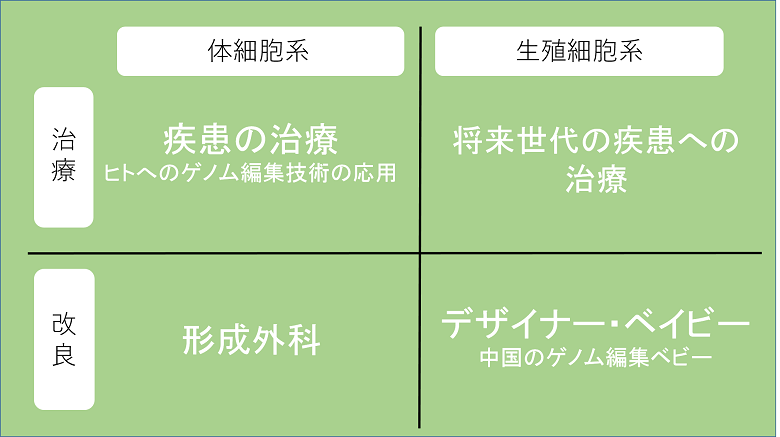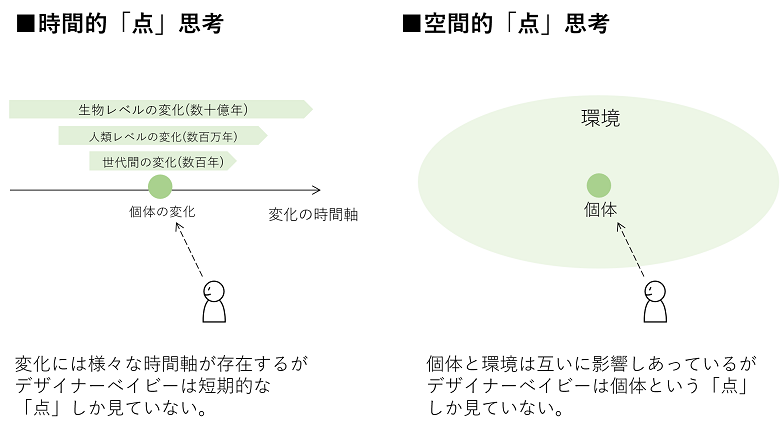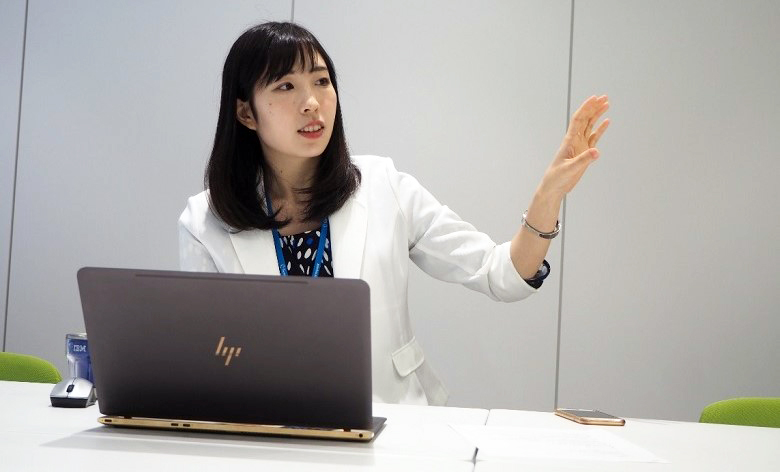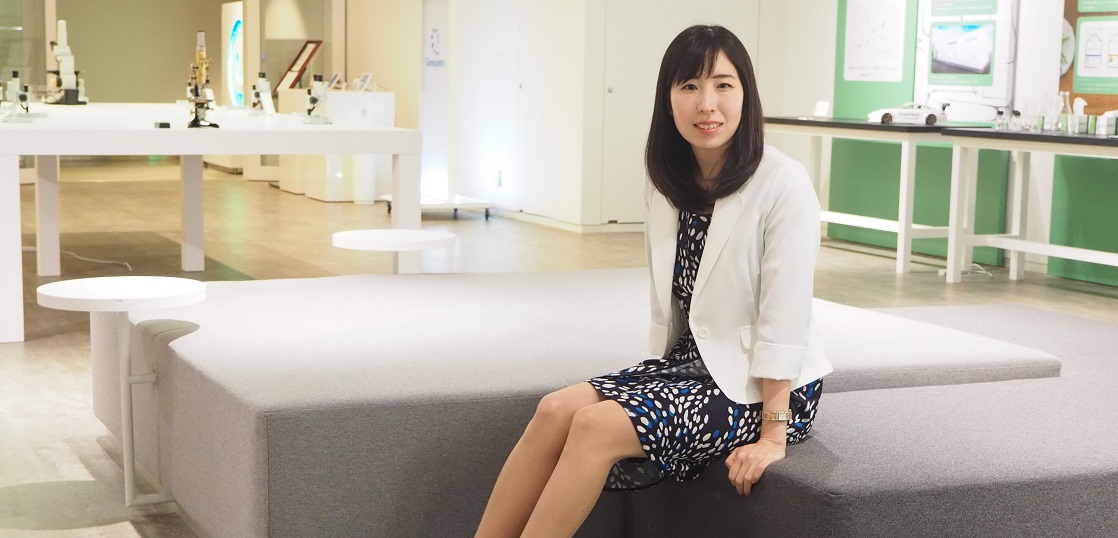In November 2018, the news that "Chinese scientist He Jiankui gave birth to twin genome-editing babies whose genes were modified by genome editing technology" ran around the world. The truth is unknown at this point, but there have been various debates over the pros and cons of this one scientist's actions.
In addition, this series of turmoil rewrote the genetic information of fertilized eggs so as not to be infected with HIV (AIDS virus), and gave birth to a genome-edited baby. Although there are other ways to prevent HIV infection, the question is why Mr. Ka used genome editing technology.
Our Executive Officer, group company GeneQuest Co., Ltd. president, and life scientist Shoko Takahashi talk about this issue.
Is Genome Editing Absolutely Evil?
Genome editing is a technology that can edit the sequence of the genome, and it is thought that rewriting the sequence can affect the vital activities of living organisms.
In addition, by applying this technology, we can expect results in treatment of intractable diseases, drug discovery research, and breeding of livestock products.
The human genome includes the somatic genome that is not inherited by the next-generation offspring and the germline genome that is inherited by the next-generation offspring.
It is becoming a common opinion that genome editing may be used as a treatment for diseases of partial somatic cell lines that are not inherited by the next generation of offspring.
On the other hand, it is said that genome editing should not be performed on germline lines for which it is unpredictable how they will affect the next generation of offspring. However, this time, Mr. He Jiankui, at his own discretion, edited the genome of fertilized eggs, which are germ cells, and gave birth to a genome-editing baby.
There is the idea of a designer baby, but this is a kind of genome editing baby, and by improving the germline that is inherited by the next generation of children, it is possible to give the child the appearance, physical strength, intelligence, etc. that parents want. Point to.
This act can change the natural traits of a person and also the traits of his next generation of children. It can be said that the genome editing baby in China this time is a designer baby whose original trait has been changed.

参考出典:https://newspicks.com/news/3190421/body/
Genome Editing How do you see the news of the birth of a baby?
~ Temporal "point" thinking and spatial "point" thinking ~
There has been a lot of debate about designer babies, but in my personal opinion, the problem is that designer babies are "point" thinking in terms of time and space.
First of all, what is time is "change" itself, and conversely, when thinking about change, there is always a perspective on the time axis.
For example, even on one time axis, there are changes on various time axes such as changes within individuals, changes across generations, changes at the human level, and long-term changes at the evolutionary level of living organisms. Are chained to each other. Therefore, when editing the genome of an individual, it is necessary to consider the viewpoints on all long-term and short-term time axes.
However, designer babies lack that consideration, such as their impact on long-term changes. It can be said that it is a temporal "point" thinking that considers only "points" on the time axis.

Moreover, not only from the viewpoint of time axis, even if you think at the same time, the individual has a space as an environment surrounding it. By nature, individuals affect the environment, and the environment also affects individuals.
However, designer babies also think only about individuals from this spatial point of view. When the child is born, how the environment surrounding the child changes and how it affects the space is missing.
Therefore, it can be said that designer babies are temporal and spatial "point" thinking. When editing the genome of humans, we think that it is necessary to break away from this temporal and spatial "point" thinking and consider what kind of effect the action has on temporal and spatial. I am.
Only unclear purpose and personal ethics are the biggest problems
In the birth of designer babies in China, there are many problems before designer babies, such as the ambiguity of the research design itself and the method of reporting research by posting it on Youtube instead of a third-party peer-reviewed scientific journal. there was.
The biggest problem is that the purpose of giving birth to a designer baby is too unclear.
Mr. Ka says that he rewrote the genetic information of fertilized eggs for the purpose of preventing infection with HIV (AIDS virus), but there were various means to avoid HIV infection.
If there is no other means to save lives, the fact that the means of genome editing was used despite other means obscures the purpose of this research, and the purpose of the means is to be used. It looks like you're falling.
In addition, the fact that the birth of a genome-edited baby this time was based on one person's ethical standards is also a big problem. Whereas what science can do is absolute, ethics is a relative nature both temporally and spatially, and is therefore based on the subjective sum of what diverse people think. It should be said.
It is very dangerous that action precedes the personal ethics of one scientist like this one.
And it is possible that genome editing, which has great potential for the treatment of intractable diseases, will be banned at all after this incident. Preceding actions with temporal and spatial "point" thinking may eliminate various possibilities that can be created in the future.

What is the future of human genome editing?
The application of genome editing technology to humans has many potentials when used correctly. When used as a treatment for illness, it may be possible to save children with intractable diseases that could not be saved before.
On the other hand, although genome editing has various possibilities, I am personally concerned about manipulating common traits such as nose height and fatness.
As endangered species are said to have low genetic diversity, biodiversity and trait diversity are very important to living organisms. Considering the evolution of humankind in this way, I think that genome editing should not be done in a way that reduces genetic diversity.
For example, if the environment changes and the ice age, such as about 10,000 years ago, comes, and if all human beings are not fat, there is a risk that human beings will be destroyed. The case of the genome editing baby in China this time cannot be exceeded at random as a result of artificial manipulation, such as the fact that genome editing that is not infected with the AIDS virus results in susceptibility to other diseases. It can be said that this is an example.
Given the unpredictable changes in the environment of the outside world, there is a direction to expand diversity like the natural evolution of life so far, rather than the artificial manipulation of genes in the range currently visible. , It is a way to survive life. I think it is better to utilize new technologies such as genome editing in accordance with the principles of the organism.
~ Continue to the second part ~
Euglena Co., Ltd. Executive Officer in charge of bioinformatics business
/ Representative Director of GeneQuest Co., Ltd.
Shoko Takahashi
Graduated from the Faculty of Agriculture, Kyoto University. In June 2013, he started GeneQuest Co., Ltd. while enrolled in the doctoral program at the Graduate School of Agriculture and Life Sciences, the University of Tokyo. Completed the doctoral course in March 2015 and obtained a doctorate. We provide a genome analysis service that conveys genetic information on disease risk and constitution to individuals. April 2018 Appointed Executive Officer in charge of Bioinformatics Business, Euglena Co., Ltd.
Received the Ministry of Economy, Trade and Industry "2nd Japan Venture Award" Minister of Economy, Trade and Industry Award (Female Entrepreneur Award), the 10th "Japan Bio-Venture Award" Japan Venture Society Award, World Economic Forum "Young Global Leaders" Selected for "2018".
In his book, "How does genome analysis change the world of" I "? -The future that can be created by life science technology- ".
Gene analysis platform "Euglena My Health"

